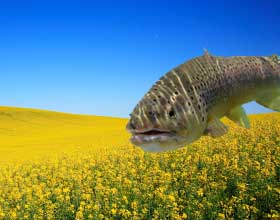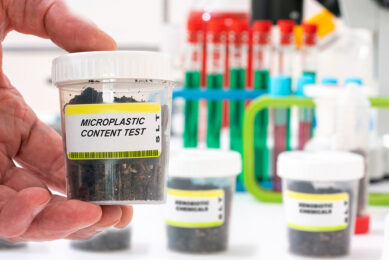Australian scientists work to produce omega-3 from canola

Three Australian organisations have joined together to produce specialty omega-3 oils from canola varieties, breaking the world’s reliance on fish stocks.
Oilseed company Nuseed, the Commonwealth Scientific and Industrial Research Organisation (CSIRO) and the Grains Research and Development Corporation have joined together in an A$50 million research collaboration which will use leading edge gene technology to develop and commercialise vegetable oil which will contain the same high quality, DHA (docosahexaenoic acid) rich long chain omega-3 that traditionally comes from fish.
The goal is to take research to the commercial stage, producing healthy, long-chain omega-3 oils for the human food market but, more particularly for the lucrative aquaculture industry.
The research partners were looking at ways to incorporate omega-3 enriched canola oil into fish feed.
CSIRO Food Future Flagship director Bruce Lee said the organisation had been working on the project since the early 1990s.
Dr Lee said scientists had shown they could produce the nutritionally important omega-3 oils in canola using genetic modification techniques. But now they want to work on optimising the ratio and amounts of the desired long chain omega-3 fatty acids in canola plus develop commercial varieties by 2016.
The fatty acids, such as eicosapentaenoic acid and docosahexaenoic acid, help prevent some diseases. These are normally found in microalgae, which end up in the food chain through wild fish eating the microalgae. But according to CSIRO the world’s wild fish stocks are insufficient to provide enough omega-3 oils to sustain the world’s human population
"This project is creating a new industry in Australia," Dr Lee said. "Farmers would be paid premiums for growing the canola. We think we can convert a considerable amount of the Australian canola crop to these premium varieties."
The project is being led by Surinder Singh, of the CSIRO’s Division of Plant Industry.The GRDC is providing funding for the project and Nuseed the oilseed breeding expertise. Nuseed has the option to license the intellectual property to companies overseas.












